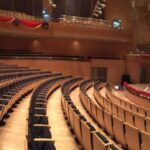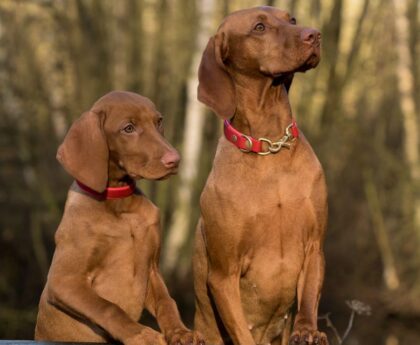- Online Petition Launched to Save Herdwick Sheep and Maintain World Heritage Status in the Lake District
- Editorial: Striking a Balance between Cultural Heritage and Environmental Conservation
- Philosophical Discussion: Balancing Preservation and Change
- Advice: Moving Forward with a Balanced Approach
- You might want to read !
Online Petition Launched to Save Herdwick Sheep and Maintain World Heritage Status in the Lake District
The Threat to Herdwick Sheep and Upland Farming
An online petition has recently been launched to save Herdwick sheep and maintain World Heritage Status in the Lake District. The petition, created by Nigel Hollingworth, aims to address the precarious future facing sheep farmers in the area. These farmers are at risk due to the policies of the Department for Environment, Food and Rural Affairs (Defra) and its approach to environmental conservation.
Sheep farmers in the Lake District have expressed concerns about the future of their livelihoods and the potential elimination of the Herdwick sheep breed. As the Herdwick breed is an iconic symbol of the Lake District’s rural heritage, its preservation is of utmost importance to many farmers and residents. The proposed Lake District Engagement Body (LDEB) aims to establish a new governance body that considers the interests of upland farmers in decision-making processes related to the World Heritage site.
The Creation of the Lake District Engagement Body
The creation of the Lake District Engagement Body would effectively ensure that any plans or policies impacting the Lake District World Heritage site are made in consultation with upland farmers. This would help to prevent decisions from being made without considering the unique challenges and perspectives of those who live and work in the area.
The petition seeks to gather support for the establishment of the LDEB, urging individuals to sign before the closing date on December 31, 2023. Dr. Hollingworth emphasizes the importance of preserving the farming landscape for future generations and maintaining the cultural and environmental value of the Lake District.
The Concerns of Farmers and Residents
The concerns raised by farmers and residents about the future of upland farming in the Lake District are significant. Mr. Keith Rowand, a local farmer with nearly 50 years of experience, expressed his fears that various organizations, including Defra, Natural England, the National Trust, and the Lake District Planning Board, seem to be working towards reducing sheep numbers and potentially eliminating the Herdwick sheep breed.
Mr. Rowand highlights the historical significance of farms like his, emphasizing that figures like George Trevelyan and Beatrix Potter purchased farms in order to consolidate the life in the valleys and ensure the continuity of the Herdwick sheep breed for future generations. The potential decline in sheep numbers and the transformation of traditional Lakeland farms raise apprehensions about the future of young tenanted farms and the authenticity of the cultural landscape.
The Debate Surrounding Sheep Farming and Environmental Conservation
The petition and the concerns raised by farmers highlight the ongoing debate between those advocating for sheep farming and those emphasizing the importance of environmental conservation. Guardian columnist George Monbiot and environmentalist Ben Goldsmith have come under fire from farmers for blaming sheep for overgrazing the uplands and suggesting that they should be replaced with trees.
This debate reflects broader philosophical questions about the trade-offs between preserving cultural heritage and protecting the environment. While both viewpoints have valid arguments, finding a balanced approach that considers the interests of all stakeholders is crucial.
Editorial: Striking a Balance between Cultural Heritage and Environmental Conservation
The Value of Herdwick Sheep and the Lake District’s Cultural Landscape
The Herdwick breed of sheep holds a special place in the cultural history of the Lake District. Their presence not only contributes to the distinctive landscape, but also represents the long-standing traditions of upland farming in the region. The sheep have shaped the land, contributed to its biodiversity, and become an integral part of the local community and economy.
Preserving the Herdwick sheep breed is important for maintaining the Lake District’s identity and safeguarding the heritage that has been passed down through generations. By supporting the online petition and the establishment of the Lake District Engagement Body, we can ensure that the voices of upland farmers are heard and their concerns addressed.
The Environmental Challenges and the Need for Sustainable Solutions
At the same time, it is essential to acknowledge the environmental challenges the Lake District faces. Overgrazing and ecosystem degradation are legitimate concerns that need to be addressed. Critics argue that reducing sheep numbers and introducing rewilding initiatives, such as planting trees, could help restore the natural balance and enhance biodiversity in the area.
Finding a balance between preserving cultural heritage and implementing sustainable environmental practices is a complex task. It requires open dialogue, scientific research, and a commitment to incorporating various perspectives into decision-making processes.
Philosophical Discussion: Balancing Preservation and Change
The Ethical Dimensions of Conservation
The conflict between preserving cultural heritage and implementing environmental conservation measures raises philosophical questions related to ethics, cultural value, and the rights of future generations. How do we balance the preservation of a cultural landscape with the need for sustainable environmental practices? How should we define the role of humans in shaping and interacting with natural environments?
Preserving cultural landscapes, such as the one embodied by the Herdwick sheep, can be seen as an ethical responsibility to future generations, as it allows them to connect with their history and heritage. However, it is equally important to acknowledge that the environment is not static. Change is a natural process, and ecosystems must be able to adapt and evolve over time.
The Need for Collaboration and Dialogue
The debate surrounding the future of Herdwick sheep and upland farming in the Lake District emphasizes the necessity for collaboration and open dialogue between diverse stakeholders. Farmers, conservationists, policymakers, and local communities must work together to find sustainable solutions that consider ecological health, cultural significance, and economic viability.
By engaging in constructive conversations and seeking common ground, it is possible to develop strategies that balance preservation with adaptation. This requires acknowledging the interplay between cultural and natural heritage and recognizing the potential for creative solutions that preserve both.
Advice: Moving Forward with a Balanced Approach
Considering Long-Term Sustainability
When grappling with complex issues like the future of Herdwick sheep and upland farming, it is crucial to prioritize long-term sustainability. This means avoiding knee-jerk reactions and instead formulating comprehensive strategies that consider both cultural heritage and environmental conservation.
Engaging in Inclusive Decision-Making
Inclusive decision-making processes that incorporate the perspectives of all stakeholders can lead to more holistic and balanced outcomes. Governments, organizations, and communities should strive to create platforms for dialogue and ensure that the voices of those directly affected, such as upland farmers, are heard and given due consideration.
Bridging the Gap between Different Perspectives
To bridge the gap between proponents of agricultural traditions and advocates for environmental conservation, there needs to be more understanding and empathy on both sides. By fostering mutual respect and recognizing the value of diverse viewpoints, it may be possible to find common ground and develop innovative solutions that address the concerns of all parties involved.
In conclusion, the online petition to save Herdwick sheep and maintain World Heritage Status in the Lake District highlights the challenges faced by upland farmers in the region. The establishment of the proposed Lake District Engagement Body could provide a platform for collaboration and ensure that decisions related to the World Heritage site are made with the input of those directly affected. Striking a balance between preserving cultural heritage and implementing sustainable environmental practices requires careful consideration, inclusive decision-making, and a commitment to long-term sustainability.

<< photo by Sueda Dilli >>
The image is for illustrative purposes only and does not depict the actual situation.




